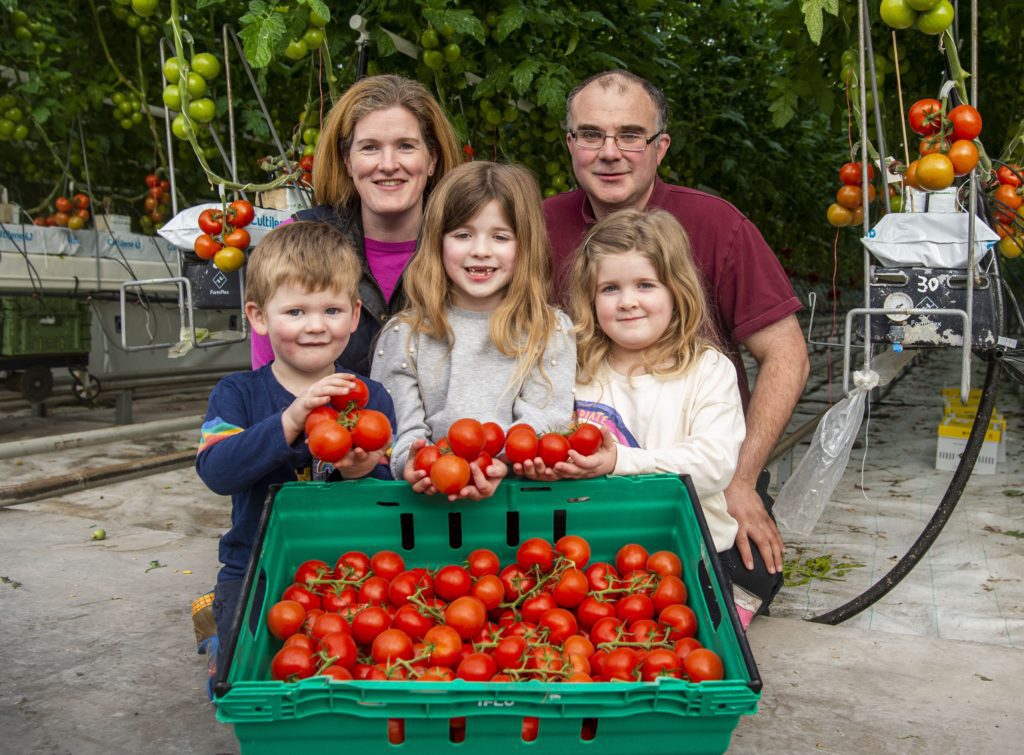Jim Shanks tells us that his grandfather bought Standhill Farm near Hawick at auction in 1951.
He recalls his grandfather as being very hands on with the farm, but he also judged cattle across the world.
His grandfather imported Friesian bulls which were at that time the dominant dairy breed.
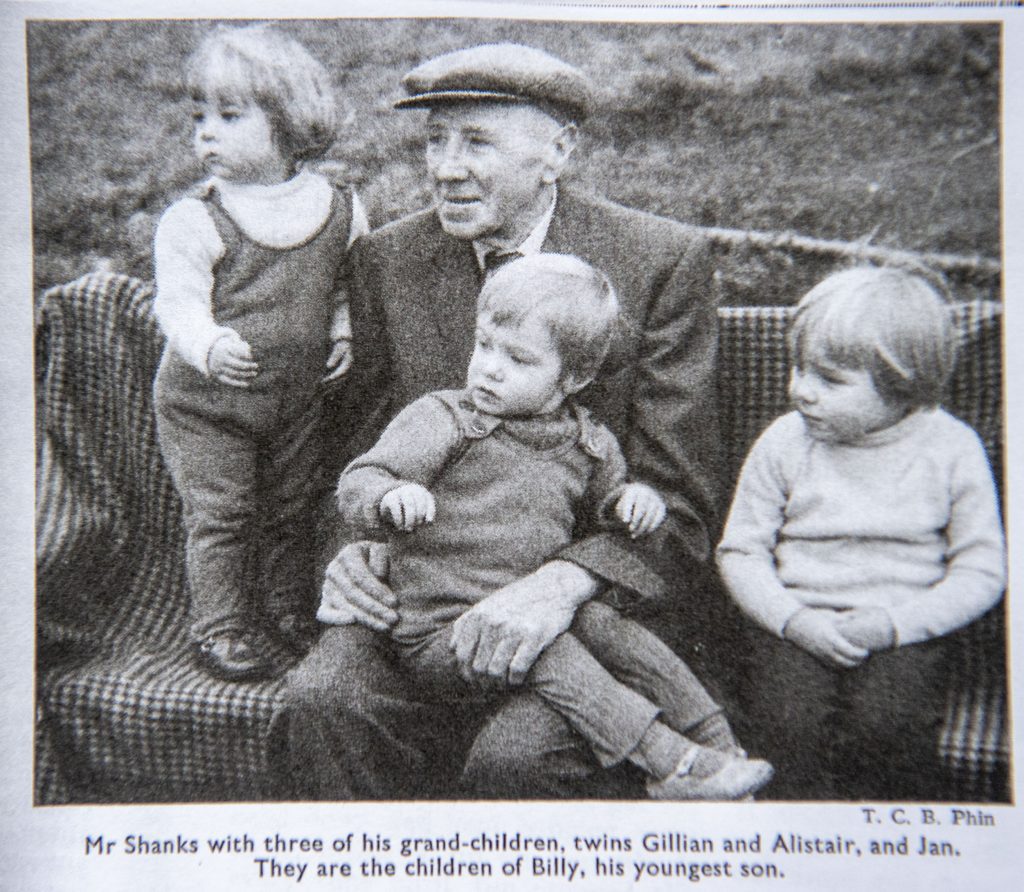
When Jim's parents took over the running of Standhill, they invested in infrastructure before latterly making cheese.
However Jim said, "when the grand kids came along, they decided they would retire properly."
Jim adds, "Dad is still the odd job, Mr Fix it man about the farm."
"You were brought up to know what a day's work is. Dairying was always seen as a tough shift even by other farmers," said Jim.
"Since we moved here as a family in 1951, the cows have been milked twice a day, 365 days a year since, you cannot miss a milking," he said.
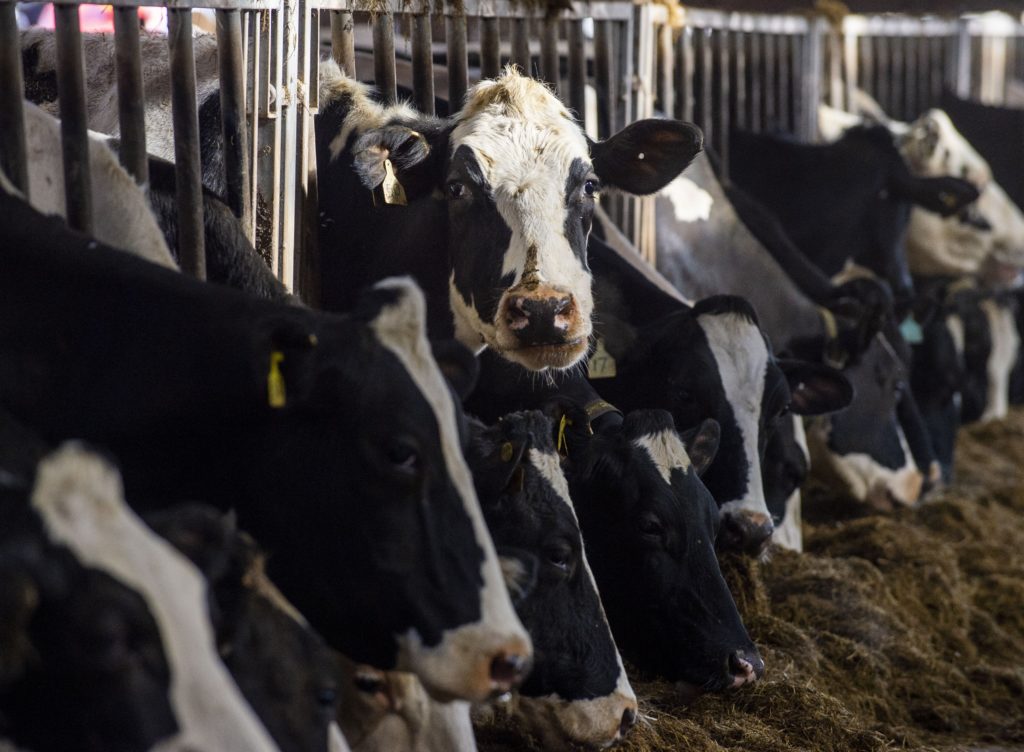
"I'm the 5th Jim, we are all Jim Shanks right the way back. I upset the family big time when I called my son George," he joked.
He said, "when I grew up there were three of us, my grandfather 'Old Jim', my father, 'Jim' and me, 'Young Jim' and then we got a dog from the pound, and guess what it was called? Jim Dog.
"My mother would come out and shout for Jim, but it would only be the dog that would come running," he said.
Today the farm has 180 Holstein cows with their milk being sold to Tesco but the herd is limited by the farm's grazing.
Jim explained, "there is quite a few hoops we have to jump through and Tesco are getting stricter about what they demand from us, but crucially they have paid above the cost of production since 2007.
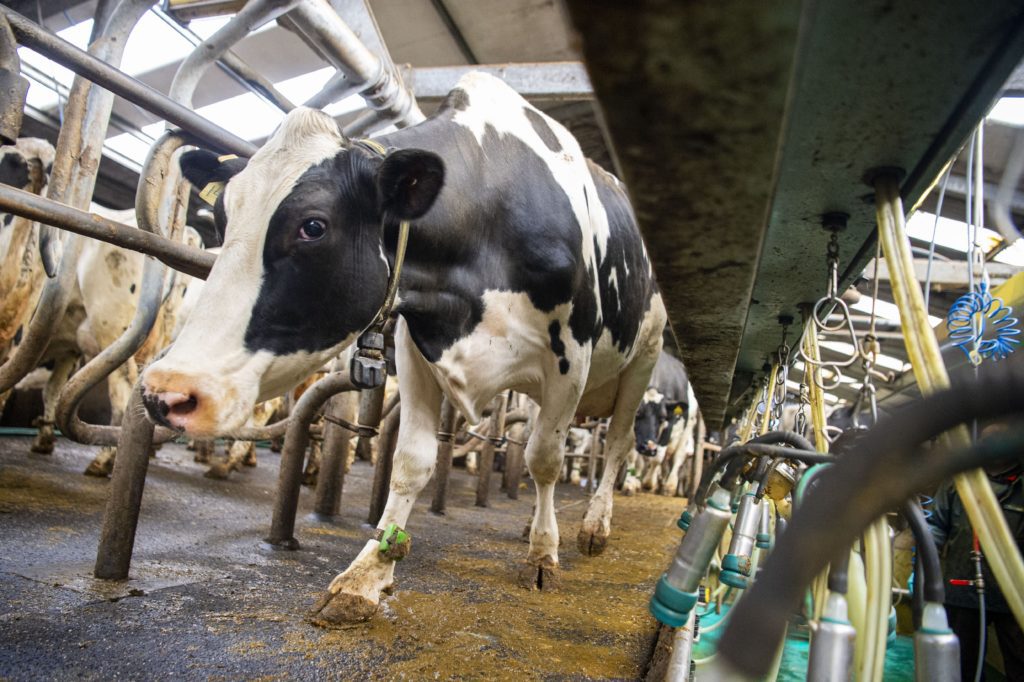
"I'd spent 10 years getting up for 4.30 am milking start."
When he took charge of the farm, he decided to changed the milking time, he said, "I was always knackered so we now milk at 7.15pm in the evening and again at 8.30 am."
Jim successfully applied for a The Nuffield Farming Scholarship in 2009.
A legacy from Lord Nuffield, who was born 1877, and came from humble farming origins.
He set up a motor car business and benefited from an educational visit to Henry Ford's production line.
The mass production methods he had learned in Detroit, were introduced when he launched his Morris Cowley motor.
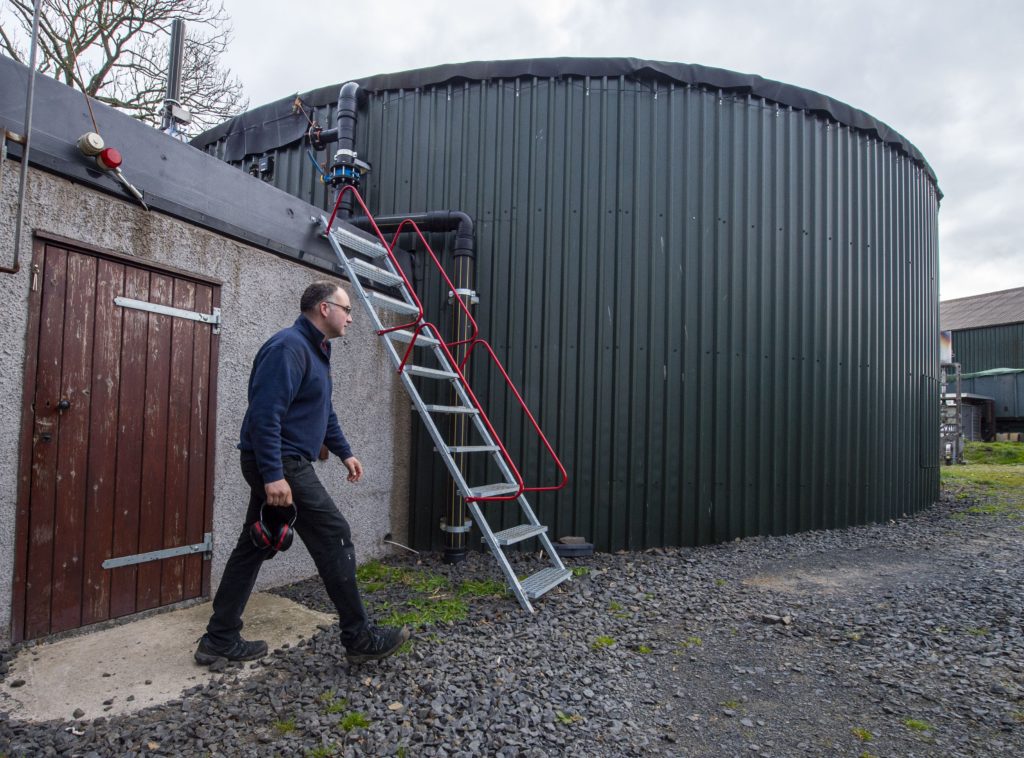
Jim said, "Nuffield scholarships are about travelling the world, to bring back ideas to implement on your farm but also to share with UK agriculture."
Anyone involved in a rural sector can apply there are about 150 applications but only 18 get a scholarship.
Jim said, "it's a wee bit like winning the lottery."
He went to Europe to learn about Bio-gas and anaerobic digestion on farms, where dairy slurry is turned into green energy.
Jim said, "some people were being quite innovative with what they were doing with the excess heat and carbon dioxide."
As a result he diversified and become Scotland's only large scale commercial tomato grower supplying supermarkets.
He said, "I bought into the idea not to waste anything, and just put everything to use.
"I didn't come to it from a green fingered point of view, I saw it as a good diversified business that we could take forward and it dovetailed with what we were doing elsewhere on the farm."
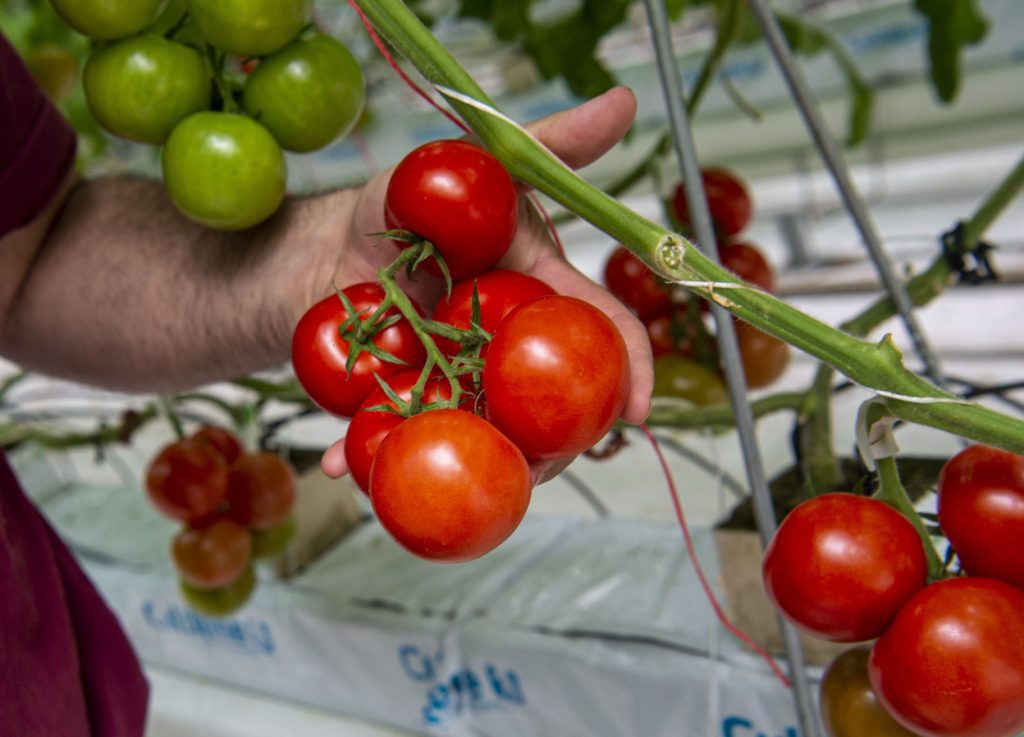
One of the first places he researched was The Clyde Valley, which was where traditionally Scottish tomatoes were grown.
The major issue was the price of kerosene heating oil, which made growing them unviable.
"We use the excess heat and the carbon dioxide in the greenhouse, and we also top up energy with wood chip boilers, so we have two forms of renewable energy." he said.
The glasshouse covers 4 acres, and has 55 000 tomato plants, both round vine tomatoes and cherry.
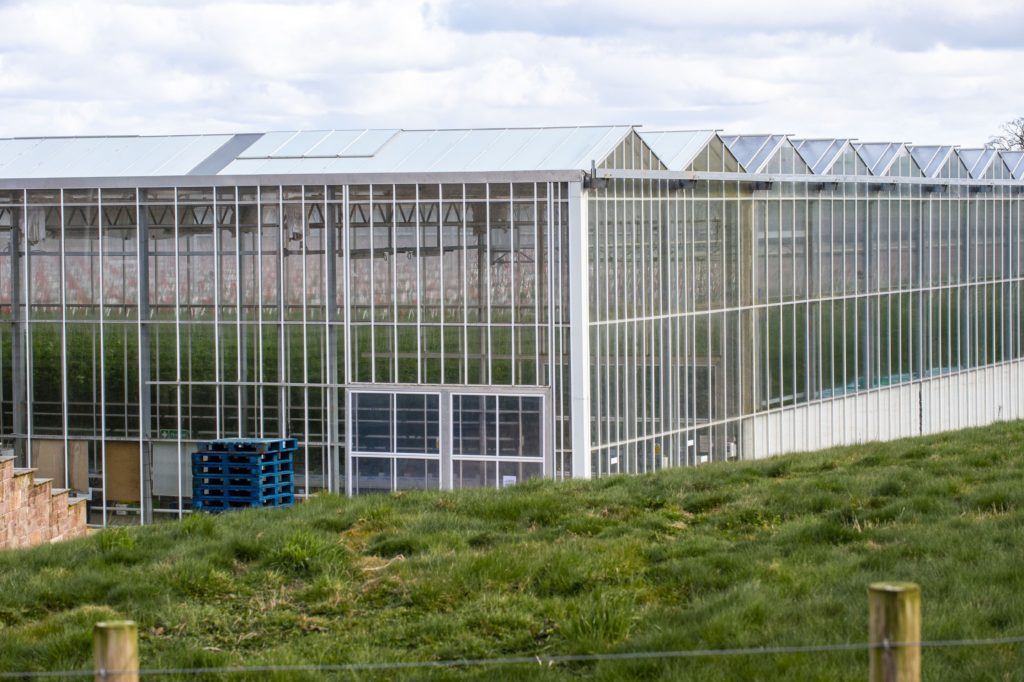
Initially Jim thought that he would sell his tomatoes at The Glasgow Fruit market but competition from imported tomatoes (Holland and Morocco) is fierce, so instead he mainly sells direct to supermarkets.
"If you are in either Morrison's or Asda in Scotland and it has a Scottish sticker, then it is ours," he said.
They have rigorous specifications and he said "we will not make money unless we get them all right."
They have to be completely round, unblemished and there is a certain colour they have to be, "not over ripe, not under ripe," he said.
Biogas is a big part of the farm income, so turning the slurry into electricity is the crucial link.
The farm produces 7000 tonnes of slurry a year, which falls under the dairy slats and it is then pumped into a biogas tank.
Jim said, "It is great food for the bugs in there, and we add a bit of rye which we grow here just to give it a nutritional boost.
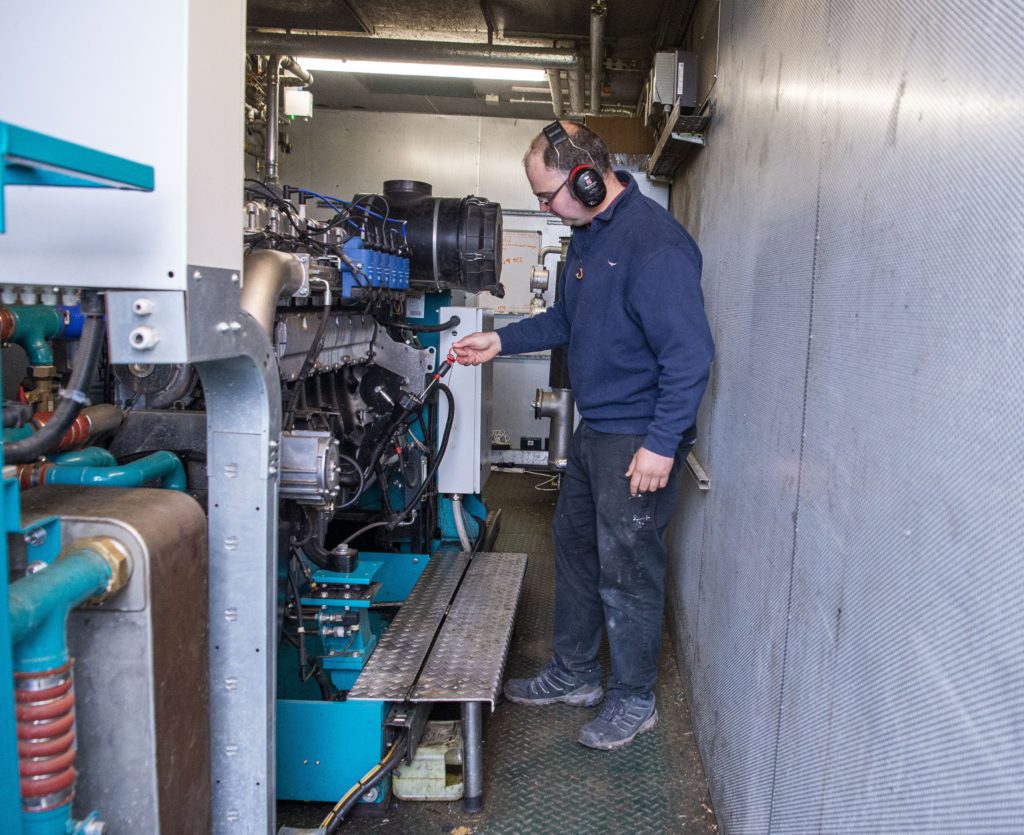
"The bugs then break everything down into methane and carbon dioxide.
"We capture that methane, which is the poisonous greenhouse gas and clean it. It is a basic hydrocarbon so we can run it through an engine, which has a generator attached to produce electricity 365 days of the year."
Like other engines it produces heat and carbon dioxide which is then used in the glasshouse.
Tomatoes absorb the waste CO2 during the day, and turn it into oxygen.
Jim said, "there is no better environmental story to be told than biogas and we produce enough electricity to power 150 households.
"It works well. I use existing German equipment and expertise, we didn't try to reinvent anything. I had seen it working on the scholarship and so I just implemented that here in the UK."
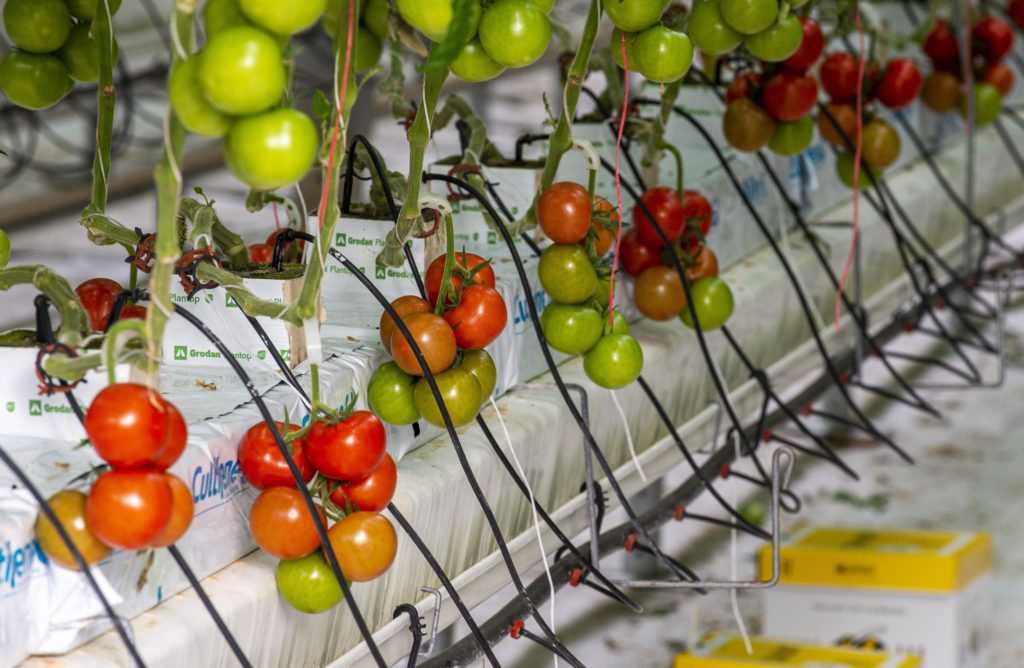
Jim buys tomato seedlings which are planted in mid-January, which are then ready for picking from the start of April until mid- November.
By that point the plant will be about 45 foot long, Jim said "so it has done a fair shift by then."
Afterwards the plants are composted and then spread onto the farmland
The tomatoes are grown in rock wool not soil, "just the same stuff you insulate your loft with," Jim said.
The reason is soil is not sterile so you will get disease.
Picking tomatoes is done by hand into 12 kilo boxes but Jim explained, "we get local kids who are leaving school or between school and university to pick for us. We are the only glasshouse in the UK that runs on 100 per cent local labour.
"The youngsters love it, because it is dry and warm and the more they pick, the more they earn and some of them can earn quite a bit."
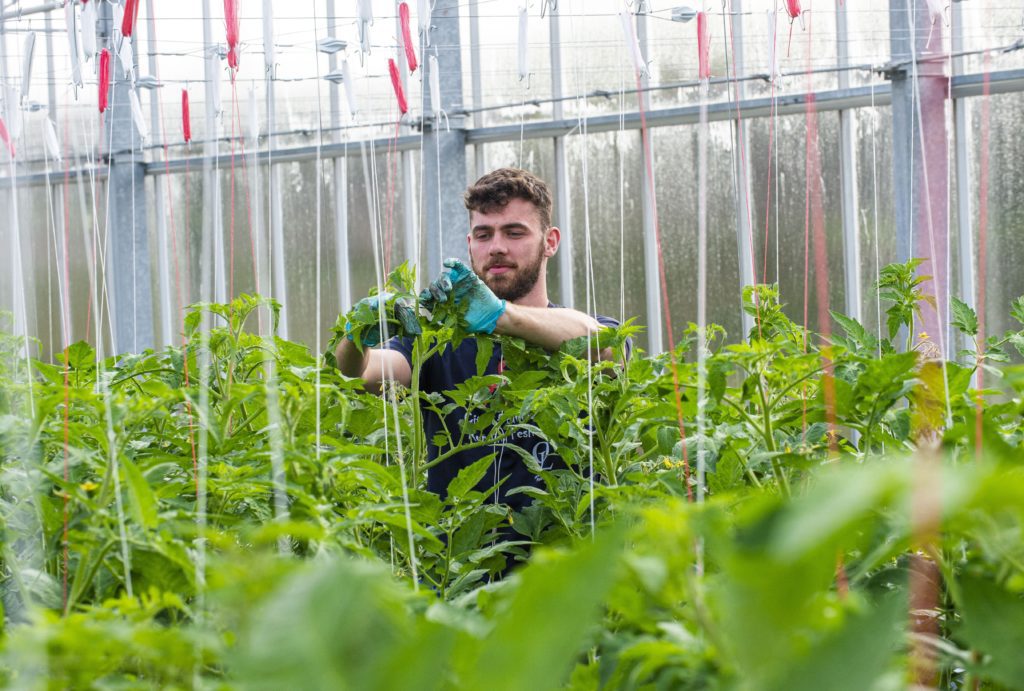
The tomatoes are then transported to England by lorry.
He said, "it seems strange sending all the way down to Southport but it makes complete sense because the lorries are going back down the road empty."
They just join the regular salad cycle at the big distribution hub where all the tomatoes are packaged.
Before being transported back to Scotland to Morrison's and Asda's depots.
He said, "it is frightening how quick the turnaround is, they are picked on a Monday and will be in the shops Tuesday night."
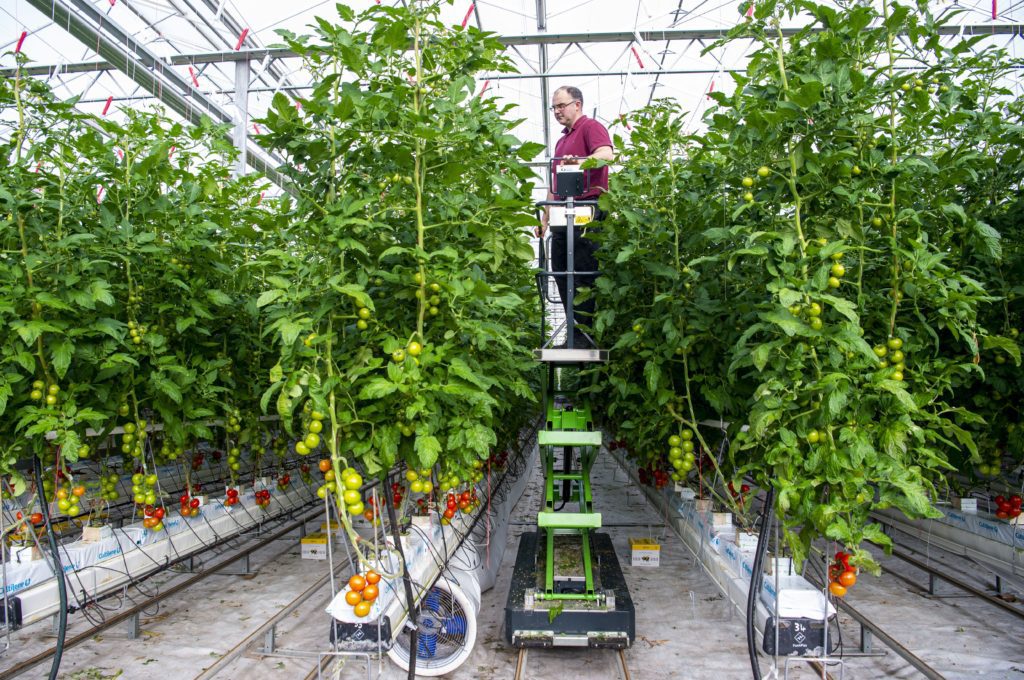
They also sell locally, with the USP being that distinctive aroma wafting through the shops which people love.
Jim said, "it is just good to see nearby shops selling our tomatoes but we don't push it because it is more work for us.
"But some of them can sell a lot of tomatoes. One guy took a third of a tonne in a week, now that is a serious amount."
Tomatoes are seen as more of an everyday item, so Jim said, "people often don't care where they come from they just want a red thing in their sandwich. The taste of it and origin just doesn't matter.
"We didn't get into tomatoes thinking ours would taste better. We thought that the price of growing in Scotland was they were not going to be as good.
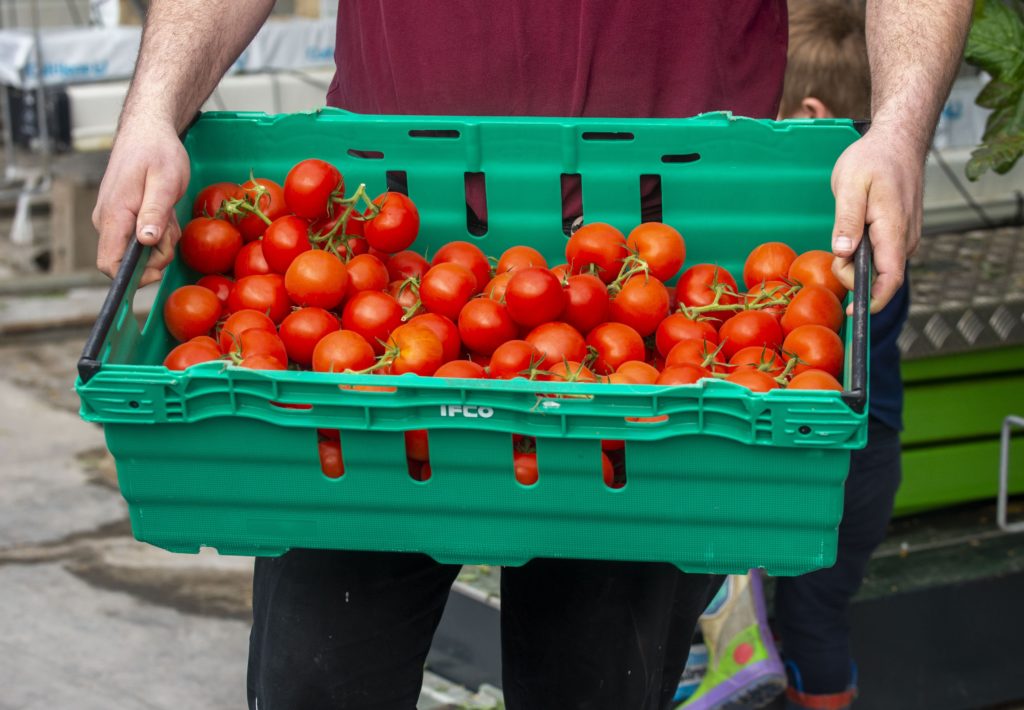
"But my goodness, they taste better than anything else."
He met his wife, Kerry at a friends annual farming shindig in 2006, so "it wasn't Young Farmers, which is the usual marriage bureau of rural people."
She comes from a family of farmers but she is now involved with the business, as well as looking after the kids, Martha (7), Anna (5), George (3).
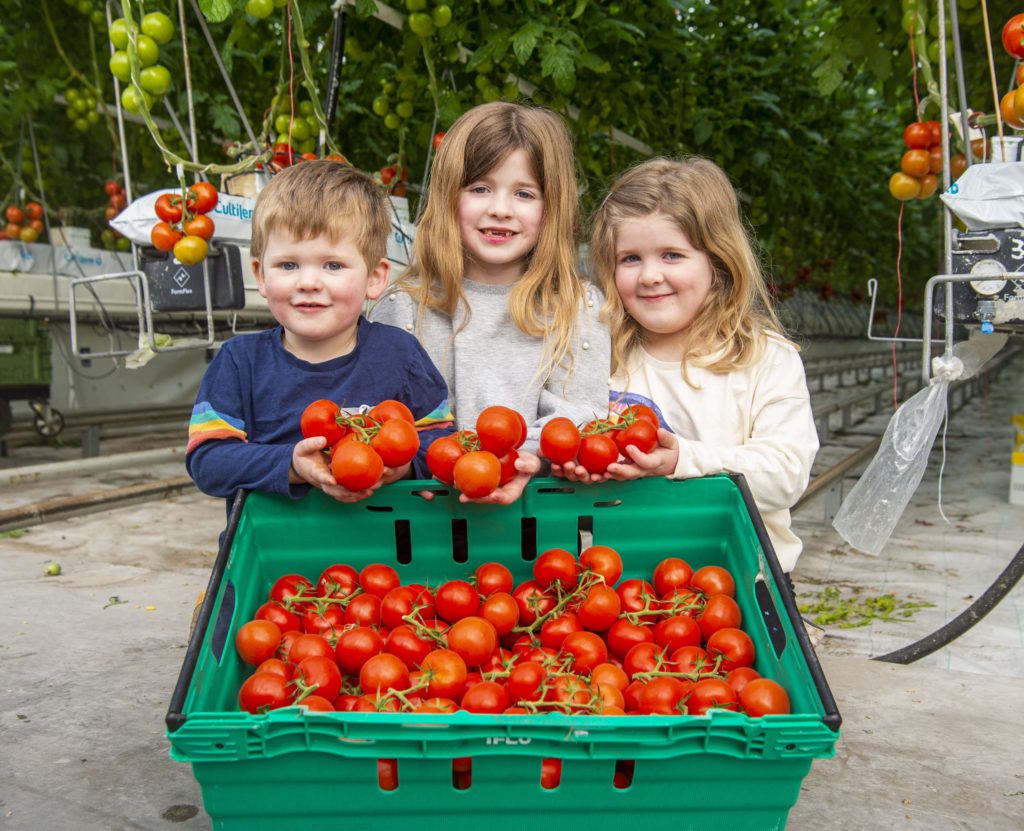
He said, "that it is a full time job. I tried a bit of it through lockdown and I couldn't do it, so I take my hat off to her."
When he first suggested his tomato growing scheme, his dad thought it was a crazy idea.
To persuade his parents, Jim took them to Germany to see biogas operating on farms and to visit glasshouses.
"The normal thing would have been to expand the herd or build more sheds, so this idea of growing tomatoes and producing electricity from the cows backsides wasn't conventional."
Jim shanks
They now love taking farm tours Jim said, "they are sociable beasts, they like a blether."
Jim also plays trombone in the local brass band, and he said, "June is always the best month for me, with both the Common Riding and The Highland Show (both cancelled) so it is going to be another real miss this year due to Covid."
But he is aware of how lucky the business has been.
Jim said "this time last year I said if we are all here and the business is still here we would be doing well, so I can't grumble. We just enjoy running our family farm, in our local community."
